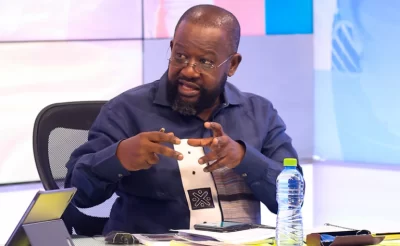Chair of the Oil and Gas sector under the Association of Ghana Industries (AGI), Mr Kwame Jantuah has said the government will find it difficult t
Chair of the Oil and Gas sector under the Association of Ghana Industries (AGI), Mr Kwame Jantuah has said the government will find it difficult to reduce fuel prices despite the possible impact of the geopolitical tension between Russia and Ukraine on Ghana’s petroleum sector.
He said there is nothing in the price build-up, the breakdown of what goes into fuel pricing in Ghana, that the government can touch in order to reduce prices of fuel.
Analysts have expressed concerns that the Russia-Ukraine conflict could have dire consequences on Ghana’s petroleum industry.
Speaking on the Business Focus with Alfred Ocansey on TV3 Monday February 28, Mr Kwame Jantuah said “When you look at the price build up, there is nothing in the price build up that the government can change today. The only way is they could probably look at is the Unified Petroleum Pricing Fund (UPPF).
“Even that when the transporters are transporting refined petroleum products for Bulk Oil Storage and Transportation (BOST) to go to the depots, they need to to be paid. Not unless we have a system where the refined petroleum product starts coming through a pipeline.”
Meanwhile, the Government of Ghana has been told what to do in order to protect Ghana’s oil and gas sector and also trading of petroleum products from the possible impact of the tension in Europe.
Although some of the experts believe that the tension will not have much impact on Ghana’s petroleum products, the government has been told to ensure reliable supply of petroleum products.
A former Chief Executive Officer of the Ghana National Petroleum Corporation (GNPC), Mr Alex Mould said the Ghanaian authorities must also work to stabilize the local currency against the major trading ones especially the dollar.
In is view, the high exchange rate threatens the petroleum prices more than the conflict between Russia and Ukraine.
Speaking on the Key Points with Dzifah Bampoh on TV3/3FM Saturday February 26, he said “I think Ghana is not too much of a problem at this moment because oil prices are not going to spike.
“Our concern should be more on the foreign exchange. We were buying foreign exchange at 6 cedis per dollar and now, it is over 7 cedis and 20 pesewas per dollar. That is what is going to increase the petroleum prices in this country.
“Like I said, the forecast for 2022 was 85 dollars for Brent now, it was initially pegged at 75 dollars. So, I don’t think there should not be any panic at the moment.
“However government should ensure that we have supply of petroleum product. Russia supplies about 20 per cent of the gas oil in Europe and if that supply fall there will be initial dangerous spike in gassoil that is deiseal.”
Member of Parliament for Yapei-Kusawgu, John Jinapor, has asked the Government of Ghana to use the profits made from crude oil sales to cushion Ghanaians during this difficult moment.
The former Deputy Minister of Energy told TV3’s Alfred Ocansey on the Business Focus progemmme that the government has made quite substantial profit from the sale of crude oil.
He said “Based on what is even happening today, because of the geopolitical tension between Russia, the West vis-à-vis Ukraine, you should expect that crude oil prices will not be coming down anytime soon.
“And so, what is Ghana doing? First of all, we are making a huge windfall. If you look at 61 to 100, that represents a 60 per cent jump, in terms of the revenues that we are expecting and so clearly, we are making some very huge windfall which we can use to cushion the ordinary Ghanaian.
“The other issue is that if you look at taxes on petroleum products the taxes are so huge, not just the number of taxes but the rate at which they have increased them.
“In 2021 we introduced what we call the energy sector recovery levy , policing levy, increased and so all those increments culminated in petroleum prices increment of about 13.6per cent instantly. So far the BOST margin has gone up about 200 per cent fuel margin has gone up about 200 per cent , it is just a plethora of taxes.”
Oil prices went up on Thursday, with Brent rising above $105 a barrel for the first time since 2014 after Russia’s attack on Ukraine exacerbated concerns about disruptions to global energy supply, the Economic Times reported.
“Oil prices are soaring with no end in sight as the news of Russia’s full-scale military incursion of Ukraine, immediately putting at risk up to 1 million bpd (barrels per day) of Russian crude oil exports transitioning through Ukraine and the Black Sea,” said Louise Dickson, senior oil market analyst at Rystad Energy.

COMMENTS